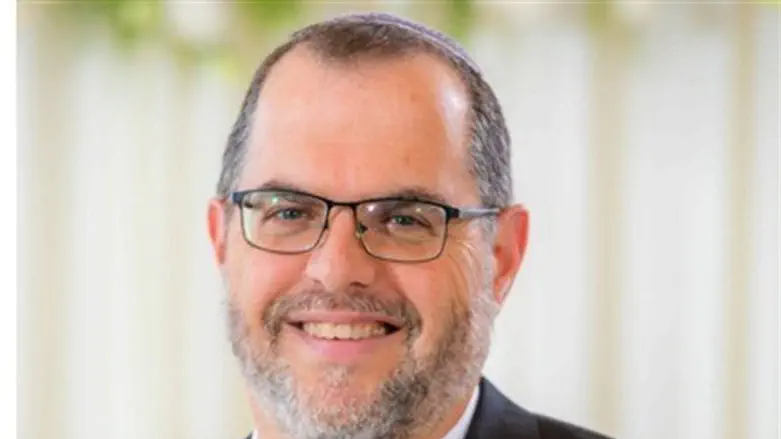
A few words in the Zohar that seemingly just describe a geographical location in this week’s Torah portion teach us an important insight into our whole essence as human beings: “Think good and it will be good.”
The 17th-century French philosopher, Rene Descartes stated: "I think, therefore I am." In his opinion, the only credible evidence for the existence of man is the fact that he thinks. For if a man thinks, there must be an “I” who thinks the thought. This statement is also applicable to our parsha this week.
The parsha begins with a description of Yaakov’s journey out of the Land of Israel, as the Torah says: “And Yaakov went out from Be’er Sheva, and went towards Charan". In the Zohar Rabbi Shimon Bar Yochai explains this verse by saying: “Yaakov left the land of Israel and entered another country.”
But Rabbi Shimon’s explanation seems not to be the truth. After all, at this stage of Yaakov’s travels, he is leaving the city of Be'er Sheva, but he is still within the borders of Israel. If so, why say that when Yaakov leaves Be'er Sheva, he has already left the Land of Israel?
In addition, in the following verses when Yaakov dreamt his dream and saw "the angels of G-d ascending and descending" Rashi explains: "(The angels) were first ascending and then descending. The angels who accompanied him in the land of Israel do not leave the land so they ascended to heaven and then the angels who would accompany him outside the land of Israel descended to him.” So here too we can ask the same question: At this point Yaakov is still in the Land of Israel and according to Rashi the dream occurred on Har HaMoriah. If so, why is the angelic “changing of the guard” happening here?
The Shem MiShmuel explains as follows: "Wherever a person's mind is, it is considered as if he is already there." That is, what determines a person’s location is not only his geographical reference, but, even more than that, where he thinks of himself as being. Therefore, because Yaakov's intention in leaving Be'er Sheva was to leave the land of Israel, it is considered as if he has already left.
The opposite is also true. When Yaakov returned to Eretz Yisrael after 20 years, the angels of Eretz Yisrael accompany him even while he is still in Chutz LaAretz, as Rashi explains in Parashat Vayishlach about the words “and angels of G-d met him there” – “angels of the land of Israel came towards him to escort him into Eretz Yisrael.”
This teaches us the greatness of the power of thought: that is what determines reality! The most important part of a human is not his body, for in that mankind is like all other beings. What makes mankind human is the spiritual part of himself which is expressed through thought. And the level of a man’s thoughts tells us what level a human he is.
Thoughts are hidden and only G-d and man himself know them. Paying attention to our thoughts can be - for each of us - a personal measure of our true current spiritual level.
In addition, thoughts have the power to influence and create reality. The Baal Shem Tov wrote about the verse in Tehillim, "He who trusts in G-d. kindness will surround him" that the meaning is that he who thinks and trusts in G-d will indeed receive kindness from Him because the very positive thought will attract G-d’s kindness to him. But on the other hand, "He who is the opposite, and is always afraid of G-d’s punishment, he attracts punishment and retribution and we pray that no evil befalls him. Because whatever a person thinks about is attracted to him. If he thinks about punishment, he will receive punishment and if he thinks about and trusts in kindness, it will be attracted to his soul and will surround him.”
Today we also understand scientifically how positive thinking makes a person healthy, both physically and mentally, and how the slogan "Think good and it will be good" is very true. Highly recommended!
Rabbi Shlomo Sobol is the head of the Barkai Rabbinical Organization and the rabbi of the Shaarei Yonah Menachem community in Modi'in.